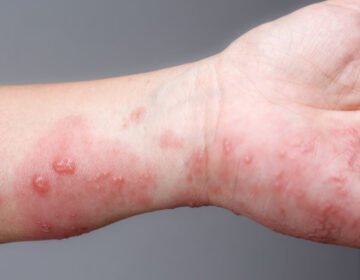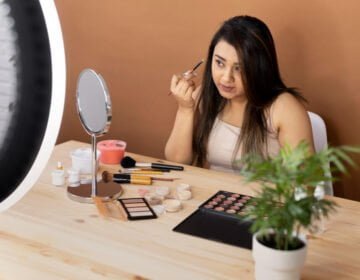
How perimenopause can affect your periods and what you can do?
Menopause means the end of the menstrual cycle. Menopause is when you have gone 12 months without a period. It usually takes place between the ages of 45 and 55. The period between menopause is known as perimenopause.
The symptoms of perimenopause can last from the age of 1 to 10. During this period, the hormones estrogen and progesterone are in flux.
This shift can be erratic by affecting the ovulation and the rest of your cycle. You might notice different things, like irregular periods, different bleeding patterns, and missing periods.
Other symptoms of perimenopause are:
- hot flashes
- night sweats
- sleep troubles
- memory issues
- difficulty urinating
- vaginal dryness
- changes in sexual desire or satisfaction
Here are the things that you can expect from your periods and what you can do to manage the symptoms of perimenopause:
Spotting between the periods
If you notice blood on your underwear between periods, which doesn’t require the use of a tampon or pads, it is likely to be spotted. Usually, the spotting results from the changing hormones and the endometrium buildup in your body.
If you are regularly spotting blood every two weeks, it might signify a hormone imbalance. In that condition, you can consult with the health care provider.
What can you do?
First of all, keep a diary with you to track the periods. The diary includes information like when the period starts, how long it lasts, and how heavy it is.
If you are worried about leaks and stains, consider wearing panty liners. You can easily find disposable panty liners at most drug stores. They are available in a variety of materials and lengths.
You can also use reusable liners like the Lunapads. They are made of fabric, and you can easily reuse them.
Abnormally heavy bleeding
Your urine lining builds when the estrogen levels are higher than the progesterone levels. This will result in heavier bleeding during the period, and the lining will shed.
It might also cause a skipped period by causing a lining to build up by creating heavy bleeding.
You can tell the bleeding is heavy if it:
- soak through the one pad or tampon an hour for several hours
- requires double protection, like the pad or tampon for controlling the flow
- makes you change the tampon or pad during sleep
- last longer than the average period
When the bleeding is heavy, it can last for a longer period. It will also disrupt your daily life.
You may feel uncomfortable exercising and carrying on with your regular tasks. Heavy bleeding can also cause fatigue and increase the risk of other diseases.
What can you do?
You may know that taking ibuprofen during the period can help with menstrual cramps. It can help reduce the flow by up to 30 percent if you take it during heavy bleeding.
It will be best to take 200 mg every four to six hours during the day. You can consult with the healthcare provider if the pain continues.
Some women might have a family or a medical history that discourages hormones in the perimenopausal period.
Dark or brown blood
The color of the blood during the menstrual flow might be changed. It might seem red or dark brown. It generally occurs at the end of the period. Brown or dark blood is considered a sign of the old blood flowing out of the body.
You might also notice a change in the texture of the discharge of blood. The release might be watery and thin. It might also be thick and clumpy.
What can you do?
The first thing is that it will be better to consult with the doctor. The main reason for the change in the color of the blood is the number of times it takes to cycle out of the body.
But not every time! Sometimes, it might also be a sign of other underlying conditions. It might also be the infection if there is a foul order to the vagina discharge.
Shorter cycles
Your uterine lining will be thinner if your estrogen levels are low. It might result in lighter bleeding and last only for a few days. It is a common problem in the earlier stages of perimenopause.
What can you do?
You can use leakage protection like pads, liners, or period underwear if you are worried about the unpredictable and short period.
When do you see your doctor?
In some cases, bleeding might be a sign of other underlying conditions.
See your doctor if you are experiencing the following things:
- heavy bleeding, due to which you have to change your tampon or pad every hour
- bleeding lasts more than seven days
- bleeding that cannot be spotted happens more frequently, more than every three weeks













